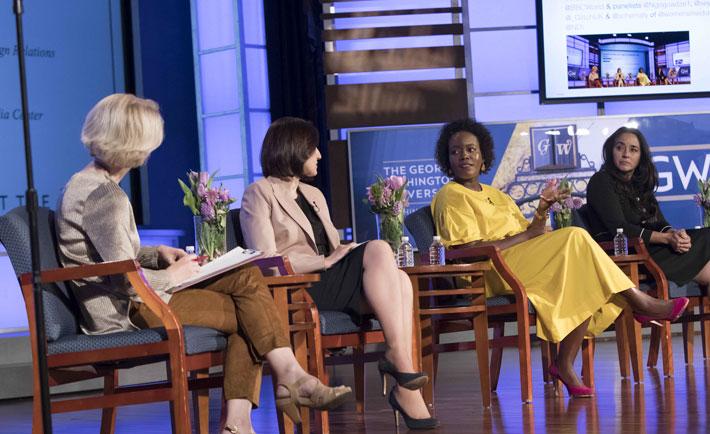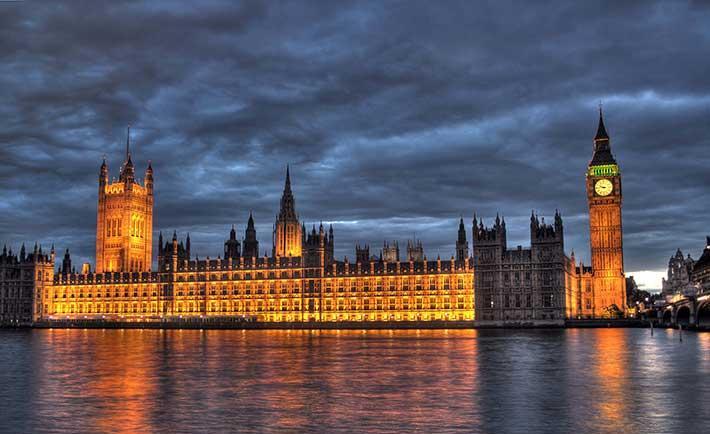
Seyi Akiwowo (second from right) speaking at the #NotTheCost Forum held at the George Washington University titled “Opportunities and Threats Posed by New Media.”
In 2017, after facing horrendous online abuse and harassment when a video of my speech at the European Parliament went viral, I founded Glitch!UK, a not-for-profit online abuse advocacy, campaigning and training organisation. Glitch!UK aims to end online abuse and harassment including online violence against women in politics. ‘Glitch’ means a temporary malfunction with equipment, and I used it for my organisation’s name because when we look back on this period in time I want us all to be able to say that the rise in online abuse and harassment was only a ‘glitch’ in our history. I was asked to be part of NDI’s Internet Governance Forum 2017 panel on the issue of online violence against women in politics, and in the months since then, I have become a public advocate for NDI’s #NotTheCost campaign, participating in three #NotTheCost events in Washington, D.C., in May.



